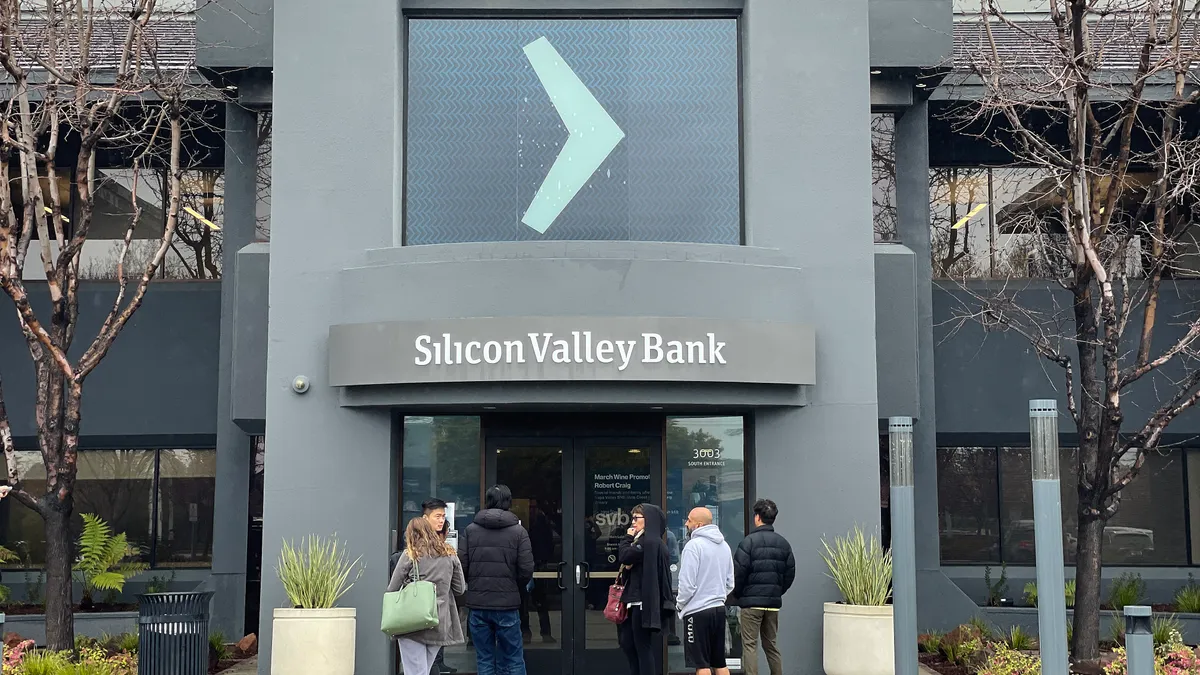Dive Brief:
-
The CFO of SVB Financial Group was among three senior officers who sold some of their shares in the bank during the months leading up to its recent collapse.
-
As of Jan. 1, the three senior officers — former CEO Greg Becker, CFO Daniel Beck, and Chief Marketing Officer Michelle Draper — had sold bank shares worth a combined total of about $4.5 million, according to data provided to CFO Dive by insider trading research firm Smart Insider.
-
Such stock sales by a company’s top executives taking place so close to the collapse of the business could raise legal issues, according to securities law experts. “We would expect in a highly salient case like this that the regulators would apply a good deal of scrutiny to transactions that occurred in the immediate lead up to these events,” Robert Weber, a securities regulation and corporate finance law professor at Georgia State University, told CFO Dive.
Dive Insight:
Federal banking regulators last week closed Santa Clara, California-based SVB Financial and took control of its deposits in what is viewed as the largest U.S. bank failure since the global financial crisis in 2008. The bank has since been reopened under government control with a new CEO.
The problems at the bank, which catered to startups and technology companies, deepened on March 8, after it surprised investors with news that it needed to raise $2.25 billion to strengthen its balance sheet, according to CNBC.
A class-action lawsuit filed Monday alleges that SVB Financial and top executives failed to disclose to investors how rising interest rates would leave Silicon Valley Bank, the firm’s banking unit, “particularly susceptible to a bank run.”
The Justice Department and the Securities and Exchange Commission are investigating the matter, including stock sales by SVB Financial officers leading up to the bank’s failure, according to the Wall Street Journal.
“Anybody who traded runs the risk of getting swept in,” Donald Langevoort, a professor at Georgetown Law, told CFO Dive.
The ultimate test of liability in such insider trading cases is “highly fact specific,” he said.
Beck sold 2,000 shares of company stock worth $575,180 on Feb. 27. On the same day, Becker exercised options on 12,451 shares valued at about $3.5 million and sold them. Draper made three different stock sales worth a total value of $342,372 since January.
The transactions were carried out under “10b5-1 plans,” which allow insiders to sell their shares of a company by setting up a predetermined arrangement specifying in advance the share price, amount, and transaction date.
“A 10b5-1 plan is not an iron-clad defense against a potential insider trading prosecution or civil enforcement proceeding,” Weber said. Under such arrangements, an insider may still face legal jeopardy if it can be shown that the motive for the trading in question was based, at least in part, on the possession of “material and non-public information,” he said.
William Lattimer, director of research at Smart Insider, said the recent stock sales by SVB’s senior officers don’t look “that unusual.”
“I would expect [the government] to look into it but not charge these insiders with any wrongdoing,” he said.












